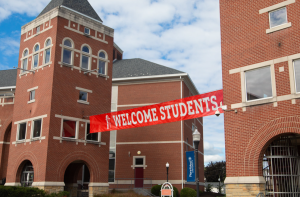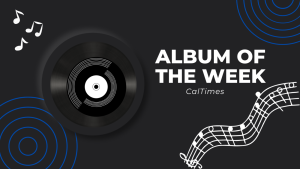Yik Yak
The Yik Yak craze
Yik Yak Logo
October 20, 2022
College students rely on social media to communicate in various ways, but many are now using an app called Yik Yak to anonymously post virtually anything they want, including personal feelings, information about campus activities, class questions, etc.
Yik Yak is a mobile app where anyone can anonymously post something of 200 characters or less, and all those in a five-mile radius who use the app will be able to see it. All those who make up a five-mile radius are in a “herd.”
According to edsurge.com, an education journalism initiative, 57% of Yik Yak users are college students, and that is whom Yik Yak creators target their market to.
Many students use Yik Yak to find out what is going on around campus. California students can pin California as a top location, so even when they leave the five-mile radius, they can still access the yaks that are being posted around Cal.
“I think Yik Yak can be considered a news source because people post things that are going on around you,” said Payton Limley, a student at PennWest California. “Since you can see what other people post in a certain radius around you the app can be informative.”
In addition to the app being a news source, students also use it to get things off their chest that they may be afraid to say otherwise.
“I have gone on the app and read people’s posts about being stressed from classes or even about personal problems,” Limley said.
Not only can people post about what makes them stressed, but users can also find some type of relief in the app.
“I believe Yik Yak is like an online counseling service,” said PennWest California Freshman, Kayla Novak.
When considering the positives and negatives of the app, college students have mixed feelings about its benefits.
“Students can benefit from having Yik Yak by being able to connect to other students. They’re able to meet others on an online platform and it’s especially beneficial to those who have social anxiety or who are really nervous about talking to someone in person,” Novak said.
On the other hand, some college students have witnessed friends and classmates being affected by the app in the complete opposite way.
“I think it’s bad because it promotes bullying because of the anonymity,” said Alexandria VanDyne, a Sophomore at West Virginia University. “I actually witnessed a girl in my geology lab crying over a Yik Yak someone posted about her saying a racial slur that never actually happened.”
Users can upvote or downvote “yaks” based on whether they like it or not. Yaks that receive five negative votes or more are removed from the app.
When users post on Yik Yak, they can receive Yakarma Points. These points are gained by yaking, receiving upvotes and comments on original yaks, or receiving upvotes on comments of other users’ yaks. Yakarma points don’t really do anything for the user besides gauge how much they are interacting with the app.
Students who use the app, use it as a way to communicate. Haley Johnson, a Sophomore at Waynesburg University, said that a lot of people use Yik Yak to talk badly about each other, but sometimes people ask actual questions, and others comment an answer so it can be an effective way to communicate.
Although commenting is also anonymous, users are assigned random icons, which are emoji symbols, that replace what typically would be a profile picture. Users can change their icons, but they will still be selected at random.
Yik Yak has many aspects that impact college students, but one yak might just make a student’s day.
“I have had Yik Yak for about a year now and actually only downloaded it after my roommate told me someone had complimented me on it. I had never really found the purpose of the app to be all that great but after receiving a random compliment from a random stranger, it completely changed my outlook. I felt so good about myself for the rest of the day and the little compliment they gave me put a smile on my face,” said Sophomore Elizabeth Shipley.






